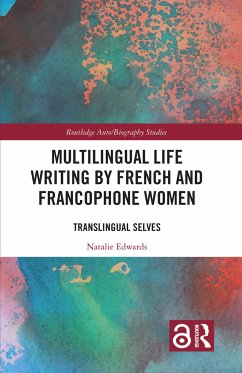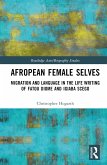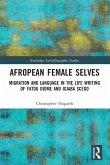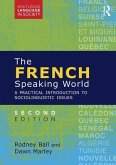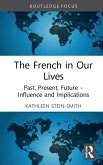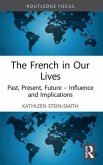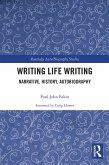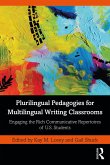This volume examines the ways in which multilingual women authors incorporate several languages into their life writing. It compares the work of six contemporary authors who write predominantly in French. It analyses the narrative strategies they develop to incorporate more than one language into their life writing: French and English, French and Creole, or French and German, for example. The book demonstrates how women writers transform languages to invent new linguistic formations and how they create new formulations of subjectivity within their self-narrative. It intervenes in current debates over global literature, national literatures and translingual and transnational writing, which constitute major areas of research in literary and cultural studies. It also contributes to debates in linguistics through its theoretical framework of translanguaging. It argues that multilingual authors create new paradigms for life writing and that they question our understanding of categories such as "French literature."
"Edwards's nuanced approach avoids 'white reading', offering parallel interpretations which acknowledge those readers who share the author's multilingualism... the decolonizing ambition of this work should be praised and is, for the most part, highly successful. Edwards's conclusion powerfully captures the importance of translanguaging in an increasingly plurilingual and mobile world; moreover, it is a practice which is intersectional in its scope and interdisciplinary in its application, thus perhaps hailing a new paradigm for women's lifewriting research."
- Jasmine Cooper, Newnham College, Cambridge
"From metropolitan France to Vietnam, Quebec, Australia, Guadeloupe, New Caledonia, Algeria, and Germany, Edwards covers a diverse range of female voices writing the self in different languages that come together in translingualing French. Her readings of six authors further the work of studying French in the translingual turn, showing a productive shift in the field of French Studies. Edwards's book opens up important areas of research in translingualism in a time that, as she so rightly states in her conclusion, bears "witness to unprecedented levels of migration, mobility, population growth and multilingualism" (p. 168)."
- Julia Elsky, Loyola University Chicago.
- Jasmine Cooper, Newnham College, Cambridge
"From metropolitan France to Vietnam, Quebec, Australia, Guadeloupe, New Caledonia, Algeria, and Germany, Edwards covers a diverse range of female voices writing the self in different languages that come together in translingualing French. Her readings of six authors further the work of studying French in the translingual turn, showing a productive shift in the field of French Studies. Edwards's book opens up important areas of research in translingualism in a time that, as she so rightly states in her conclusion, bears "witness to unprecedented levels of migration, mobility, population growth and multilingualism" (p. 168)."
- Julia Elsky, Loyola University Chicago.

